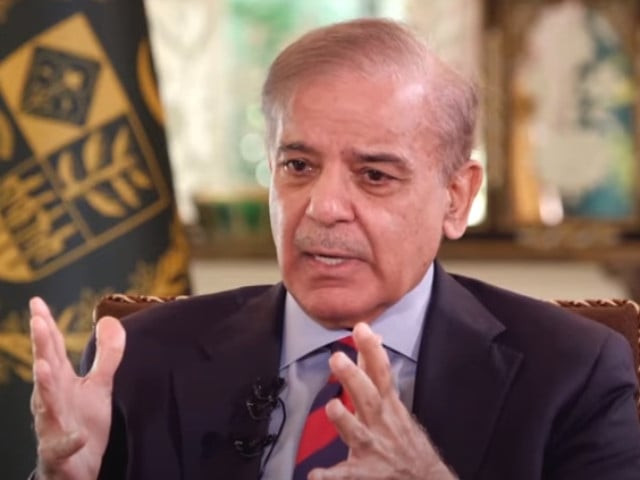PM approves Rs1.5tr tax measures
Massive new taxes, including on milk and salaries, passed with minimal input

The government did not discuss the Rs1.5 trillion inflationary new tax measures in the special cabinet meeting, and Prime Minister Shehbaz Sharif approved the presentation of the Finance Bill in Parliament without the input of cabinet ministers, revealed sources on Thursday.
The cabinet debated only one taxation issue at length – the withdrawal of the sales tax and income tax exemptions for the erstwhile Federally Administered Tribal Areas (FATA) – and tasked the Advisor to Prime Minister on Political Affairs, Rana Sanaullah Khan, to prepare recommendations. Issues like taxation of the salaried class and imposing taxes on packaged milk and infant milk were not debated in the cabinet, said the sources.
They added that almost half of the time of the special cabinet meeting was spent on the topic of the $5000 fee that Pakistan’s top bureaucrats receive while attending one board meeting of some government-owned enterprises, according to the government sources.
The prime minister and the Deputy Prime Minister, Ishaq Dar, were both of the view that these bureaucrats should keep only a portion of these hefty board fees and surrender the remaining amount to the exchequer. The federal cabinet spent the remaining time discussing budget figures and the proposed increase in government employees’ salaries, they added.
The special cabinet meeting was held just before Finance Minister Muhammad Aurangzeb’s budget speech in the National Assembly on Thursday.
It is rare that the federal cabinet has not discussed the revenue measures totalling Rs1.5 trillion despite their far-reaching implications for the government and the parliamentarians due to heavy taxation.
Neither Information Minister Attaullah Tarar nor Secretary Cabinet Kamran Afzal responded to requests for comments.
However, the PM approved the taxation measures and signed the summary of the Federal Board of Revenue (FBR). The matter has now landed in the National Assembly for approval.
Journalists on Thursday protested against the undue hike in tax rates for the salaried class during the finance minister’s post-budget press conference.
The federal government has increased the tax rate for both salaried and non-salaried taxpayers in the federal budget for the next financial year, placing a cumulative burden of Rs75 billion on salaried persons and another Rs150 billion on non-salaried individuals.
Similarly, the government has made massive changes to the sales tax regime to raise an additional Rs484 billion, which will stoke inflation in Pakistan. The government has imposed an 18% tax on milk, infant milk, and fat-filled milk. All stationery items have been taxed at a rate of 10%.
The government has imposed an 18% sales tax on vegetables and fruits imported from Afghanistan. An 18% GST has also been imposed on diagnostic kits imported by hospitals and on supplies of electricity and gas to hospitals, generating Rs30 billion.
Likewise, a 10% GST is proposed on oil cake, poultry feed, tractors, cattle feed, sunflower seed meal, and canola meal, increasing prices of cooking oil, milk, and chicken in Pakistan. A 10% sales tax has been imposed on the sale of stationery and newspapers. The government has imposed an 18% sales tax on cardiology, cardiac surgery, and other medical treatments.
The excise duty on cement has been increased by another Rs1 per kg and the government has also imposed an Rs15 per kg excise duty on sugar.
All these measures, along with a slew of other taxes, have been taken without the input of the federal cabinet, although the PM had already seen and approved those measures.
The sources said that a significant amount of the federal cabinet’s time was spent discussing the hefty fees that a handful of bureaucrats were receiving for board meetings of state-owned enterprises. The premier had serious objections to receiving up to $5000 or Rs1.4 million for one board meeting.
At least two government entities, Pak-Arab Refinery Limited (PARCO) and the Pakistan Telecommunication Limited (PTCL), pay around Rs1 million or more in fees for every board meeting. PARCO pays $5000 per meeting fee and PTCL pays about $3,500 for each board meeting.
The secretaries of finance, petroleum, privatisation, and information technology are members of these boards.
There are also boards where the fees range from Rs100,000 to Rs250,000 per meeting.
Last year, Dar had announced that the government servants should retain a maximum of Rs600,000 annually on account of the board fees and the rest of the amount should be deposited. However, this decision was never implemented.
The sources said that some cabinet members suggested on Wednesday that the bureaucrats should now be allowed to retain only Rs1 million per annum on account of the board fees.
The cabinet also discussed the issue of the increase in salaries. The finance ministry had proposed a 22% raise for grades 17 to 22 and 25% for grades 1 to 16 employees. Some cabinet members suggested that pensions should be increased by 10%, grades 17-22 salaries by 15%, and grades 1-16 by 20%.
But it was then decided that the pensions should be increased by 15%, grades 17-22 by 20%, and grades 1-16 by 25%.



















COMMENTS
Comments are moderated and generally will be posted if they are on-topic and not abusive.
For more information, please see our Comments FAQ